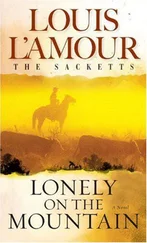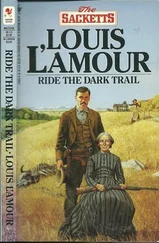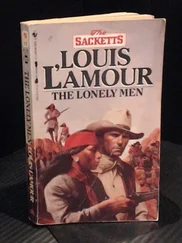Chapter 19
Helena stood on the terrace outside the Castle. It was late evening. For two days there had been no news from the Lena, and a message from her meant news of the Susquehanna. Each day until then there had been a bidarka to bring news or lack of it. The last canoe had brought word the Susquehanna had been sighted and, capture was imminent.
Reception of the news in Sitka had been mixed. Despite the fact that the Americans were foreigners they had brought wheat to Sitka, and their plight found sympathy among the people of the town. Baron Zinnovy was already unpopular, and the fact that he had impounded the wheat had won him no friends. The wheat would have been lost to them but for an unexpected show of firmness by Count Rotcheff, who refused to permit the impounding and took the matter out of Zinnovy's hands. Rudakof, straddling the fence on most issues, met this one head on from necessity. Reluctantly, he backed up the Count, who was, after all, in authority.
Rotcheff's words were repeated all over the settlement. "I am afraid, Baron Zinnovy," he had said sternly, "you have exceeded your authority. Your mission is to protect Russian trade and traders, not to enforce your arbitrary decisions in matters of no concern to you. I must remind you, sir, to restrict yourself to your duties and cease interfering with the civilian authorities." Helena, who had been present, was suddenly bursting with pride for her husband. The Baron had stood at attention, ramrod stiff, his eyes straight forward, his body fairly trembling with repressed fury. He saluted, made an abrupt about-face, and strode from the room, heels clicking on the hard floor. Yet all knew it was but one battle in a campaign and the decision was not yet. Helena realized that there was more to the search for the American ship than the personal animosity Zinnovy bore for Jean LaBarge. If the Susquehanna could be captured with a cargo of furs--Zinnovy could claim she had been trading with the secret connivance of Rotcheff, and trading illegally. More than ever she appreciated the danger of their position, for had Rudakof failed to back up her husband, Zinnovy might have taken drastic action to free himself from interference, and orders were of no importance if they could not be enforced. Scarcely more than a child when she had married Count Rotcheff, she had not been unhappy. He was thirty years older than she, but an intelligent, attractive man, respected for his genuine ability and his sometimes biting wit. She had grown up listening to talk of politics and intrigue, a game at which her husband was a master.
A door closed behind her and she turned to greet her husband. "I am glad you are out of that stuffy office."
"It is nice here." He inhaled deeply, then glanced at her. "Do you believe they will catch him?"
"No ... no, I don't."
"Nor I." They walked a few steps together. "He is clever, this American of yours. Busch tells me he has friends all through the islands, and what Busch has learned of LaBarge's dealings convince him that LaBarge is extremely astute." Somewhere out among those dark, mysterious islands he might even now be fighting, dying. The air was growing colder but she felt no desire to go in ... this was the same air that he was breathing; even now he might be standing on his deck, watching the dark water slip past.
"I like it here," she said suddenly.
"Sitka?" He was surprised.
"I mean all of this, as it is now, young and free."
"And barbaric."
"Of course ... and I like even that."
"There is something primitive in all women, I suspect. Women think in terms of the basic. Love, marriage, children."
"What better things to think of?"
"Of course. It is as it should be and lucky for us males, God knows. You are coming in?"
"Soon."
He paused near the door, watching the dark serrated edge of the pine forest against the night sky. Somewhere down in the town someone dropped a piece of iron and it rang loudly on the pavement. He glanced at Helena, feeling his age now in the growing chill of the evening. This bout with Zinnovy might be his last. He must move shrewdly ... the man had influence, damn him! And he was vindictive, which Rotcheff was not. It was a pity, he reflected, that the men of good will are so poorly armed, for at times it was a handicap not to hate. It took a fanatic to win, a fanatic believer or one utterly ruthless. He, Rotcheff, thought too much of the other man's point of view, he could always see both sides of an argument. That would not do in a world where there were Zinnovys. Yet Zinnovy was a Russian and they talked loudest when they faced weakness. We are basically, he thought, a race of tyrants and poets, and his own fault was in being too much the poet, too little the tyrant. He looked again at Helena, standing by the stone parapet. In the world from which they had come it would be considered an absurd thing, but he loved his wife. He had not married for love. Helena was beautiful, she was wealthy, and her family was powerful in his world of intrigue and politics. Theirs had been a marriage of purpose. Yet he had been a lover once, and a successful one, with many conquests behind him. He knew all the little things that please a woman. He smiled thoughtfully. The best lovers were those who did not really love, for if one became too emotional there was in the place of eloquence a stumbling tongue, in the place of charm, awkwardness.
The surprise had been his. He found Helena, even though he was sure she did not love him, a thoughtful, attentive, and considerate wife. Had he met her twenty-five years before she might have loved him ... but then he could not have afforded her!
Their life had been singularly happy, and if she did not love him she did respect and admire him. These last years had been his happiest. He was not sure when he fell in love with his wife; nonetheless, it had happened, and now for the first time he sensed her unrest, and he knew the cause. Jean LaBarge was a handsome man, not in a pretty way as were some of the Czar's officers who had paid court to her, but in a tough, dangerous way. The Count, considered in his day a superb swordsman, and victor in four duels to the death, admitted to himself he would dislike to face LaBarge with a rapier in his hand. The man had it in him to kill ... not from malice, for there did not seem to be cruelty in him, but simply because he was, more than anyone in the Count's experience, a fighter.
"Helena"--he turned back to her--"have you ever been sorry you married me?"
Scarcely had he uttered the words than he was wishing they had not been said.
Was he a boy to expect such a question to receive more than the obvious answer? She turned to face him. "No, Alexander, I have not been sorry, and I shall never be sorry."
He welcomed the sincerity in her voice. "I'm afraid I have been a bad husband ... too preoccupied." He waved an irritated hand. "Marriage in our lot is so much a matter of state. We scarcely know each other until it is too late." "It has never been so with us," she protested. "You know it hasn't." She was right, of course. There had always been a warm, friendly understanding between them, and in the past few years it had become even better. They had, really, been two of the lucky ones.
He remembered the first time he had seen her, when he was a young officer in the Imperial Army, and had come to her home to visit, accompanying her uncle. She had been, a little girl with large, serious eyes who was always in a corner, reading. She had come running from the door to greet her uncle, followed by a huge wolfhound she called Tovarich. Suddenly seeing the strange young man, she had stopped, torn between eagerness and embarrassment. He had seen her fear and had walked to her, bowing deeply. "Princess, I am your servant. And when was a mistress afraid of her servants?" She laughed then. "You! You couldn't be a servant! With that nose?"
Читать дальше












